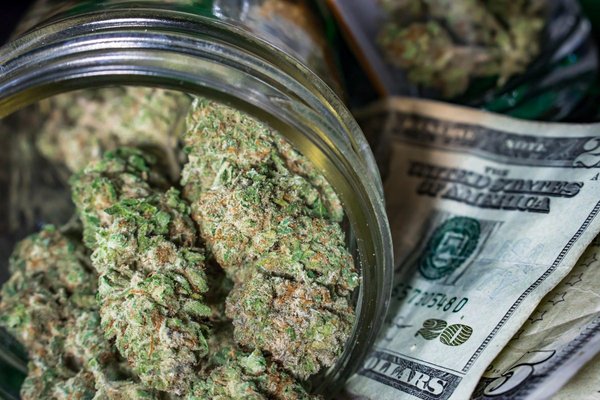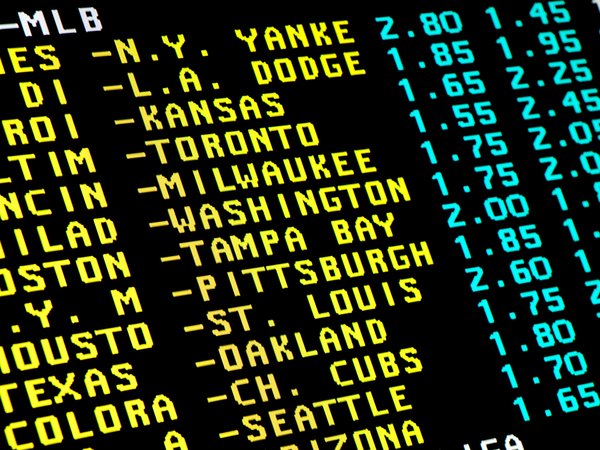For most investors, inflation is one of the spookiest words they can hear.
While the relationship between inflation and stock returns is subject to intense study and debate, trying to find investments that act as a hedge against inflation is common.
Alternative investments like gold, wine, art, and real estate are often cited as investments that can "beat inflation," or post percentage returns higher than the percentage of inflation over a given period.
Ultra-high-net-worth investors (those with a net worth of at least $30 million) are big investors in alternative investments. A Motley Fool survey found that in 2020, those investors had 50% of their assets in alternatives.
Alternative investments are no longer limited to the super-rich. The average investor can now invest in fine wine and spirits, buy shares of art and other collectibles, invest in real estate, and purchase cryptocurrency.
But are alternatives really a good way to beat inflation? Or should you just stick with stocks? We dug into the data to find out.
Key findings
- Alternative investments including wine, whiskey, real estate, art, commodities, and cryptocurrency beat inflation in 2021 -- but so did stocks.
- Stocks outperformed bonds, gold, wine, and whiskey in 2021 amid high inflation. Art, Bitcoin (CRYPTO:BTC), Ethereum (CRYPTO:ETH), and commodities provided a larger return than stocks in 2021.
- Over the past five years, stocks have averaged a higher return than gold, wine, art, real estate investment trusts, and commodities.
- Since 1980, bonds came out ahead of inflation most often but still returned less overall than stocks and real estate.
- Alternative investments can be more volatile than stocks and bonds and come with unique risks and challenges.
Alternative investments like wine, real estate, art, and cryptocurrency beat inflation in 2021 (so did stocks)
Inflation grew 7% from December 2020 to December 2021, but that didn't stop alternative investments and the S&P 500 from posting big gains.
| Asset | 2021 percent change |
|---|---|
| Ethereum | 2,724% |
| Crypto index | 177% |
| Art | 58.81% |
| Bitcoin | 57% |
| REITs | 40.11% |
| Commodities | 37.95% |
| S&P 500 | 26.89% |
| Whiskey | 20.62% |
| Wine | 19.10% |
| Inflation | 7% |
| Bonds | -1.29% |
| Gold | -6.06% |
The S&P 500's 2021 return of 26.89% was strong enough to beat inflation and returns from bonds, wine, and whiskey (based on indexes of each).
But the S&P 500 was outperformed by a number of alternative investments amid rising inflation.
Art posted a 58.81% return in 2021, based on Art Market Research's All Art Index, which tracks auction sales.
Cryptocurrency continued its bull run. Bitcoin, despite whipsawing throughout the year, saw 57% growth in 2021. Ethereum, the second-largest cryptocurrency by market capitalization behind Bitcoin, posted an eye-popping 2,724% gain.
Crypto overall performed exceptionally well in 2021. The S&P Cryptocurrency Broad Digital Market Index, which broadly tracks the performance of digital assets, returned 177% in 2021.
Real estate investment trusts (REITs), composed of companies that own real estate, returned 40.11% in 2021, based on the FTSE Nareit Real Estate Index.
Commodities are the raw materials used to create consumer products, and they returned 37.95% in 2021, based on the S&P GSCI, a commodity index. Commodities have been one of the most consistent hedges against unexpected inflation, which is logical given that the rise in cost of consumer goods is in part driven by increased cost of raw materials.
Gold had a down year in 2021, posting a 6% loss despite traditionally being thought of as a safe store of value, particularly during times of inflation. The idea of gold being a hedge against inflation is a myth, and the metal has been consistently beaten by stocks.
Wine, real estate, art, and cryptocurrency can outperform inflation and the market, but come with risks and volatility
While alternative investments posted strong returns as inflation took off in 2021, their performance over the past five years is ripe with volatility.
Among alternative investments, cryptocurrency exhibited by far the most volatility on the basis of yearly returns.
Since 2017, wine has been the least volatile alternative investment, followed by whiskey, gold, REITs, commodities, and art.
The S&P 500, while slightly more volatile than wine, whiskey, and gold, has also posted a stronger average annual return over the past five years than three alternative investments as well as REITs.
| Year | Inflation | S&P 500 | Bonds | Wine | Whiskey | Art | Crypto index | Bitcoin | Ethereum | REITs | Commodities | Gold |
|---|---|---|---|---|---|---|---|---|---|---|---|---|
| 2021 | 7% | 26.89% | -1.29% | 19.10% | 20.62% | 58.81% | 177% | 57% | 2,724% | 40.11% | 37.95% | -6.06% |
| 2020 | 1.20% | 16.26% | 7.51% | 2.30% | 15.63% | -18.98% | 255% | 304% | 466% | -7.16% | -6.31% | 24.02% |
| 2019 | 1.80% | 28.88% | 8.72% | -4.13% | 10.91% | -0.01% | 47% | 87% | -8% | 14.94% | 15.58% | 18.61% |
| 2018 | 2.40% | -6.24% | -0.05% | 10.00% | 20.10% | 11.65% | -81% | -72% | -83% | -0.89% | -15.24% | -2.64% |
| 2017 | 2.10% | 19.42% | 3.54% | 10.00% | 44.68% | 8.94% | 1,831% | 1,291% | 8,965% | 9.00% | 13.19% | 12.68% |
| Average annualized return, 2017 to 2021 | 2.86% | 17.04% | 3.69% | 7.45% | 22.39% | 12.08% | 446% | 333% | 2,413% | 11.20% | 9.03% | 9.32% |
Alternative investments also come with unique risks.
Stocks are strictly regulated by government agencies and the exchanges they list on, while the markets for wine, whiskey, art, and cryptocurrency operate with relatively little regulation and can lack transparency.
Alternative assets that are physical are by definition illiquid, which can create a headache if funds from such an investment are needed but can't quickly be accessed.
Owning physical assets can also require paying for insurance in case the asset is damaged as well as fees for maintaining the asset. Wine cellars and climate-controlled art storage aren't free, after all.
Stocks, bonds, and real estate consistently beat inflation
Since 1980, the S&P 500 has beaten inflation in 28 out of 40 years, bonds have beaten inflation in 32 out of 41 years, and REITs have beaten inflation in 26 out of 41 years.
Although bonds were slightly more likely to beat inflation than stocks or REITs over that period, bonds generated a smaller return.
Over that period, stocks and real estate had an average annual return of nearly 11%, while bonds saw an average annual return of 7.5%
The S&P 500 outperformed bonds in 26 out of 41 years while REITs did the same in 25 out of 41 years.
In 1980 and 1981, when inflation was over 10%, REITs beat inflation, while bonds posted positive returns but couldn't keep up with inflation. The S&P 500 posted nearly a 26% return in 1980 and lost 9.73% the following year as inflation persisted.
In short, stocks and real estate can get you through inflationary periods -- as long as you hold on -- while generating strong returns over the longer term and avoiding the downsides of alternative investments.
How can the average investor use alternative investments to hedge against inflation?
While 50% of ultra-high-net-worth investors hold alternative investments, being able to invest in real estate, cryptocurrency commodities, wine, and art during times of inflation is possible for the average investor.
Real estate investment trusts (REITs) provide access to the real estate market and can be traded just like stocks.
Cryptocurrencies like Bitcoin and Ethereum can be traded on many platforms available to all investors.
There are also plenty of exchange-traded funds that track commodities that all investors have access to. You can buy equities directly related to specific commodities -- like agriculture stocks or mining stocks --too.
In terms of physical goods, like wine and art, don't worry, you don't need to attend an art auction or figure out how to perfectly store wine on your own.
Platforms like Vinovest and Cult Wines will take your investment and manage the logistics of wine investing for you. Platforms like Masterworks allow you to purchase shares of fine art. (Of course, The Motley Fool always recommends doing research into any investments products before you buy in.)
Because these platforms handle the transaction and provide storage, logistics, and insurance, they can come with relatively steep fees. Most also require a minimum account value of at least $1,000.
Alternative investments aren't the only way to hedge against inflation. If you don't want to dive into the world of cryptocurrency, commodities, wine, and art, you can be confident that a diversified portfolio of equities will get you through periods of inflation albeit with some turbulence.
While inflation can seem spooky, if you have confidence in your investments, your portfolio is diversified, and you can manage to not panic sell when the market drops, you'll be able to weather however the market moves in inflationary periods.
Since 1944, there have been six periods when inflation was 5% or higher compared to the previous year, and those periods lasted three years at most -- and in 2008, only two months.
Over that same time frame, the S&P returned over 2,300%. Not bad, despite a few periods of high inflation.
Sources
- Bureau of Labor Statistics. "Consumer Price Index for All Urban Consumers: All Items in U.S. City Average (CPIAUCSL)."
- The Balance (2020). "Aggregate Bond Index Returns vs. Stocks 1980-2018."
- CoinDesk. ""Bitcoin."
- CoinDesk. "Ethereum."
- Live-ex. ""Live-ex Fine Wine 1000."
- Macrotrends. "S&P 500 Historical Annual Returns."
- Morningstar (2021). "Commodities: Inflation Hedge or Fool's Gold?"
- Nareit. "Annual Index Values & Returns."
- Rare Whiskey 101. "Rare Whisky Icon 100 Index."
- S&P Global. "S&P GSCI."
- S&P Global. "S&P Cryptocurrency Broad Digital Market Index."
Jack Caporal has no position in any of the stocks mentioned. The Motley Fool owns and recommends Bitcoin and Ethereum. The Motley Fool has a disclosure policy.

























































